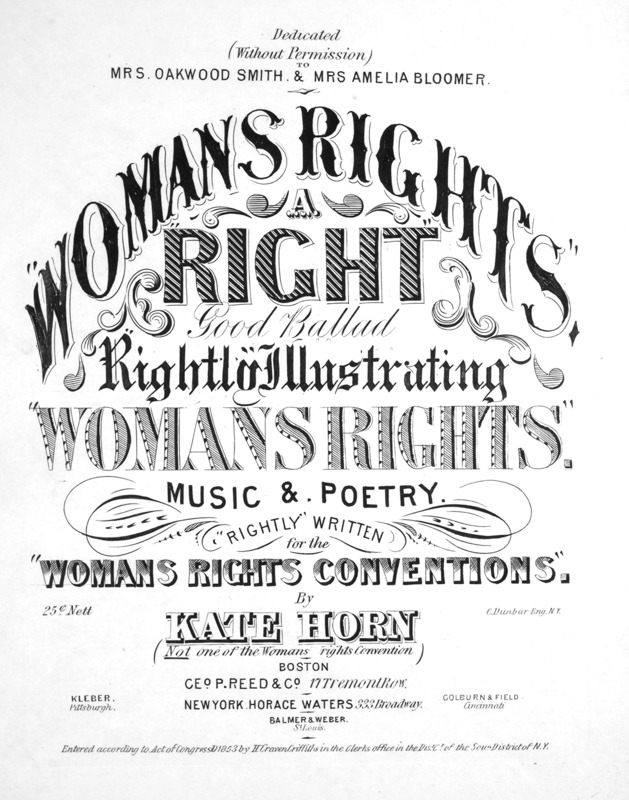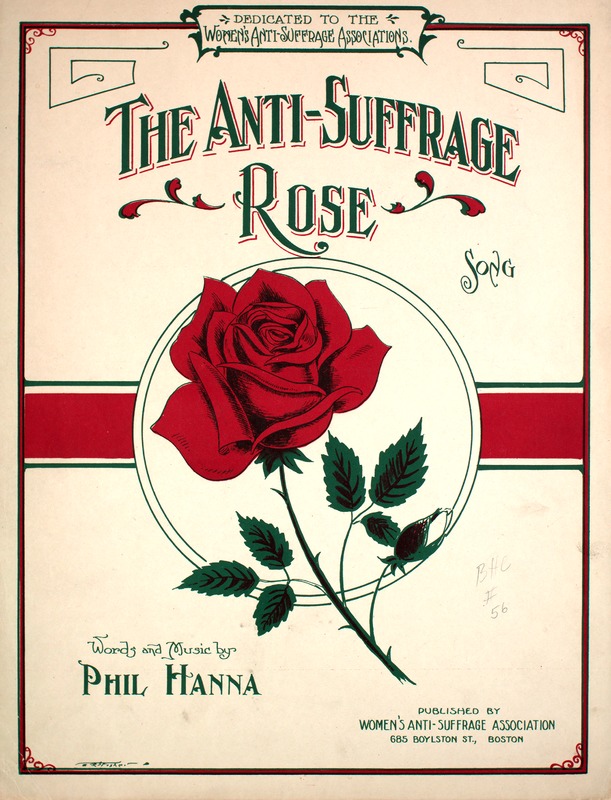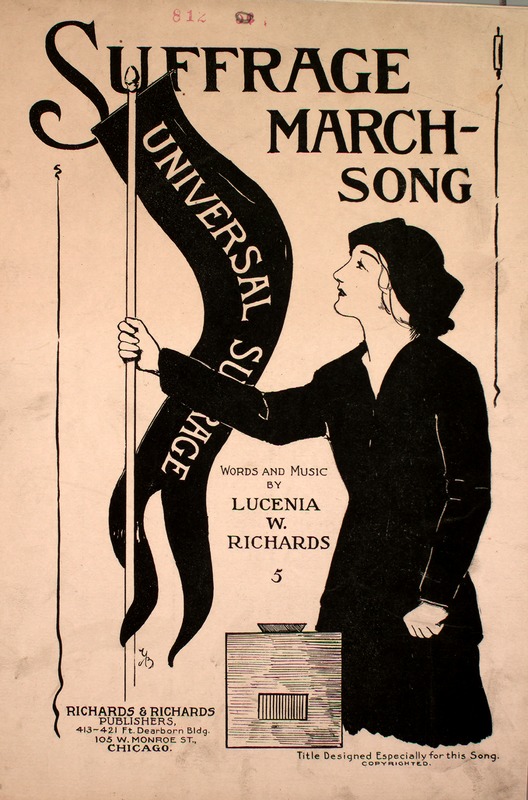Suffrage
The Levy collection features many songs illustrating the suffrage movement, including several rare anti-suffrage works.
This anti-suffrage song was composed by Kate Horn in 1853. The cover itself has a massive amount of text, mostly consisting of the word "rights," sarcastically. The song is dedicated (without permission) to Mrs. Oakwood Smith and Amelia Bloomer--the former is likely a minstrel character that appeared after the Seneca Falls convention. The author also expressly notes that she's not one of the womens rights convention. This is one of the earliest suffrage-related songs in which both the music and lyrics are attributed to a woman.
There are 7 verses in the song, each discussing the rights a woman should and shouldn't have. For example, it's her right to dress as she likes, but only if it doesn't "ruin" her lord. It's also her right to claim respect from men of every grade, but not to "walk around as master to each trade." The fourth verse clearly states women should not be in governing positions, claiming it's "not her right to mount the stand and speak as commentator." One of the more interesting verses is the first one, in which Horn claims "'Tis womans right to rule the house and petty troubles brave, but not her right to rule the head and treat him as her slave." This both gives voice to men's fears that they will be subjugated by their wives, and draws a direct comparison between suffrage and slavery in 1853-- 8 years before the Civil War.
This anti-suffrage song was published in 1875 by "Dennis McFlinn" and "Van." However, the bottom of the cover notes that the copyright is held by A.C. Weeks, the actual composer. The text of the song is in a mock-Irish dialect, similar to the African American dialects found in minstrel music. It's from the point of view of a man celebrating how he will benefit from his wife being elected to office, so it appears to be pro-suffrage on the surface level. However, The Image of Ireland and the Irish in American Popular Song Lyrics points out, "By the 1870's the association of shady politics with the Irish was so ingrained in American popular culture that when a songwriter named A.G. Weeks sought to attack women's suffrage by suggesting that political wives would simply become the pawns of shiftless working-class husbands, he cast his satire in an Irish dialect, writing under the pseudonym of Dennis McFlinn."
This song is possibly the most explicitly anti-suffrage song in the collection, published in 1915. The cover is very detailed and colorful-- likely expensive to produce. The red rose on the cover is also an anti-suffrage emblem.
The song is dedicated to the Womens Anti-Suffrage Association, who is also the publisher of the song (so it's dedicated to iself). Some "antis" felt that politics were an expressly male field, so a woman entering would lose her femininity. Some even argued that women already had power in the home, which extended to the world through the influence of their properly educated children. There were also fears that by entering the labor force that women would abandon their children and homes.
A recording in the original style can be found here, while a modern interpretation can be found here.
Ending on a positive note, this pro-suffrage song was composed in 1914 by Lucenia Richards, and appears to be self-published (Richards and Richards). It doesn't appear to be a particularly high-budget song-- there is only black ink, and it has much less than detail than "Anti-Suffrage Rose."
The inner cover has a fantastic call to action from Richards, that almost sounds like a public speech. In referring to the song, she says, "May its martial strains awaken the best fires that burn within us-- may its rhythm give us zeal-- may its motto give us determination, is the heart wish of the composer." The text of the song also addresses some common anti-suffrage rhetoric-- for example, "We will do our duty still... bake the pies and rock the cradle." The song remains one of the most special in the entire collection.



